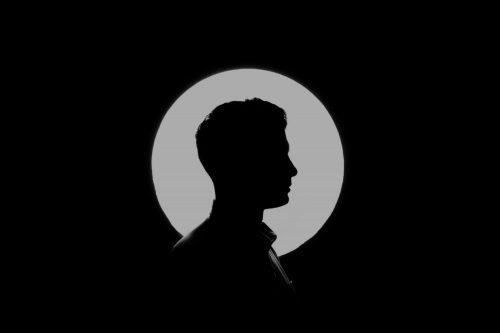Human beings are infatuated with “habit change.”
But changing one’s habits does not change one’s life.
Because lasting change doesn’t work like that.
If you desire the simple life,
decluttering is a dead end.
If you strive for financial freedom,
“better” spending habits won’t get you there.
If you want to live healthfully,
“improving” your diet won’t make things right.
Indeed, anything you do
to “change your life”
won’t change your life.
Why?
Because if you start with the how,
you inadvertently forsake the why.
Big mistake.
Sure, you may embrace new methods and modalities,
new tips and tricks and techniques,
and they will improve your mechanics.
You can change your habits.
Clean out your cupboards.
Pay down your debts.
Shed a few pounds.
At first, the benefits will seem plentiful.
But then
a day later,
a month later,
a year later,
when new obstacles emerge,
you will wonder…
Why the change didn’t stick.
Why the “bad” habits returned.
Why the pounds resurfaced.
Why the debt reappeared.
Why the clutter crept back.
Well.
If you don’t understand why
you’re doing what you’re doing,
you will always regress to old patterns.
It’s not your fault; it’s cultural conditioning.
People are programmed to praise prescriptions—
we are habituated to habitually enhance our habits—
without exploring the depths of our trauma.
Society instructs us
to grow endlessly,
to make progress,
to take massive action,
to “just do it.”
But the doing takes us only halfway, and then leaves us stranded.
Discernment, on the other hand, catapults us to the finish line.
Recipes and formulas work well for perfunctory pastimes—
for baking a cake or organizing a sock drawer—
but beyond the basics, they get in the way.
An instruction manual leaves no room for greatness.
No room for interrogating the mess.
No room for profound personal breakthroughs.
In the real world,
the world of constant change,
in which nothing is “fixed,”
the method always follows the breakthrough.
Not the other way around.
Once you are sufficiently exasperated by the status quo,
once the suffering associated with not changing is intolerable,
once the cost of your current state is no longer acceptable,
you will experience a quantum shift in understanding,
and change will be simple.
Of course, simple is never effortless, but the lasting change that is propelled by awareness is far mightier than any half-hearted action “sparked” by habit change.
When you realize the truth—
Clutter doesn’t make you discontented,
chasing contentment through consumerism does.
A lack of money doesn’t make you broke,
hunting happiness through hedonism does.
Food doesn’t make you fat,
seeking satisfaction through surfeit does.
—that’s when lasting change arrives.
The root of your misery grows out of excess.
“Bad” habits are merely a byproduct of being unaware.
I know because, for years, I tried to “change my life.”
I employed the “right” habits
at the “right” intervals
with the “right” tools and intentions.
Yet even with diet plans, budget calculators, and organization systems,
I remained obese, indebted, and surrounded by clutter.
But the moment I comprehended the real problem—
the problem beneath the surface problems—
I was able to let go of societal solutions.
That’s when everything actually changed.
Stated plainly:
Changing your life
won’t change your life.
But understanding will.
The moment you understand the source of your troubles,
an awareness flows through every fiber of your being,
and habits change without volition.
For once you see the problem in its entirety,
you will have no choice but to change.


